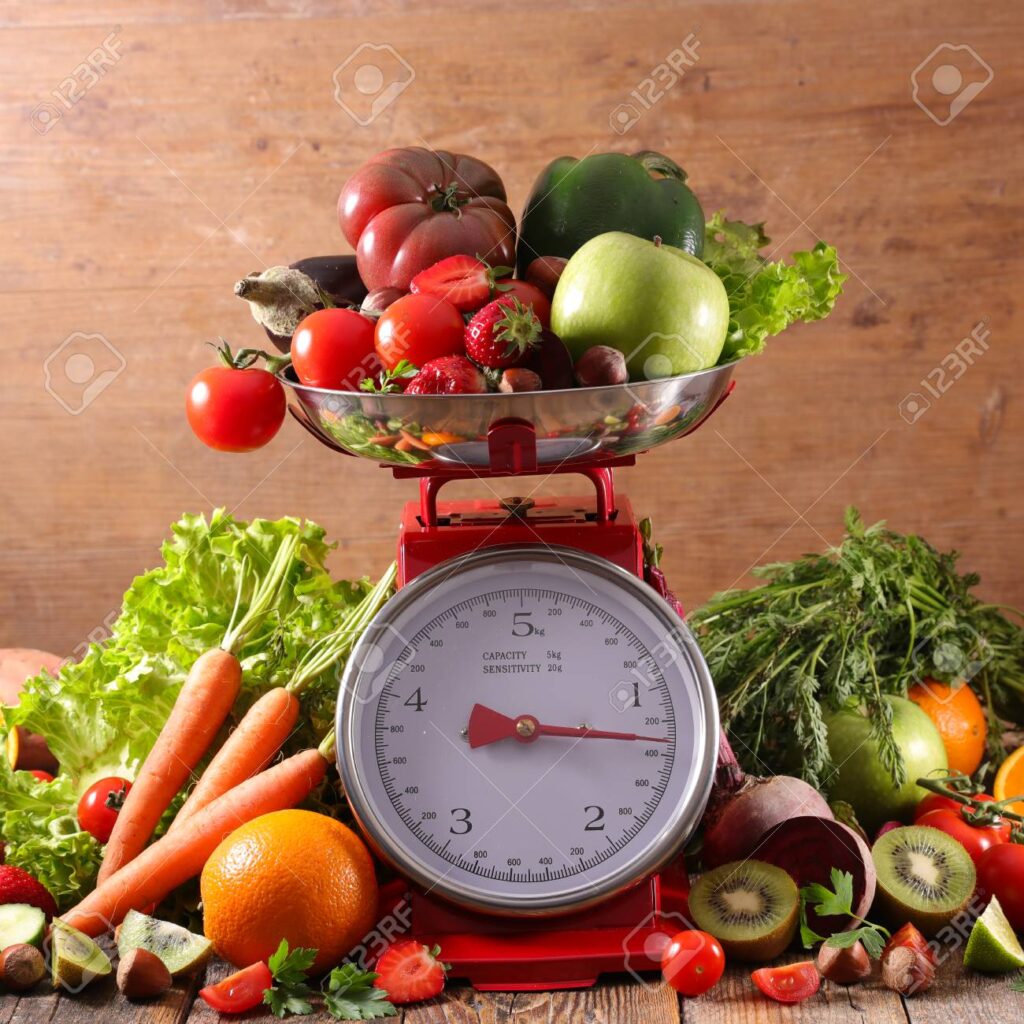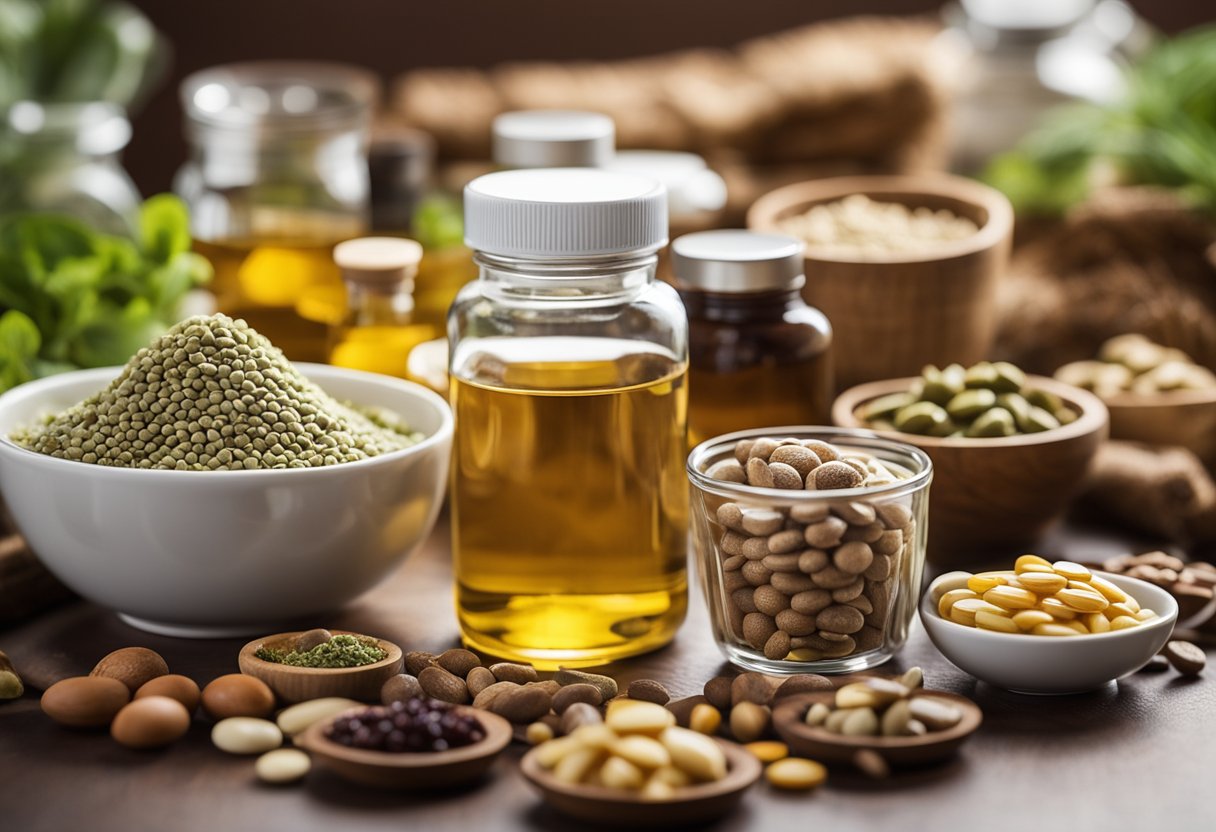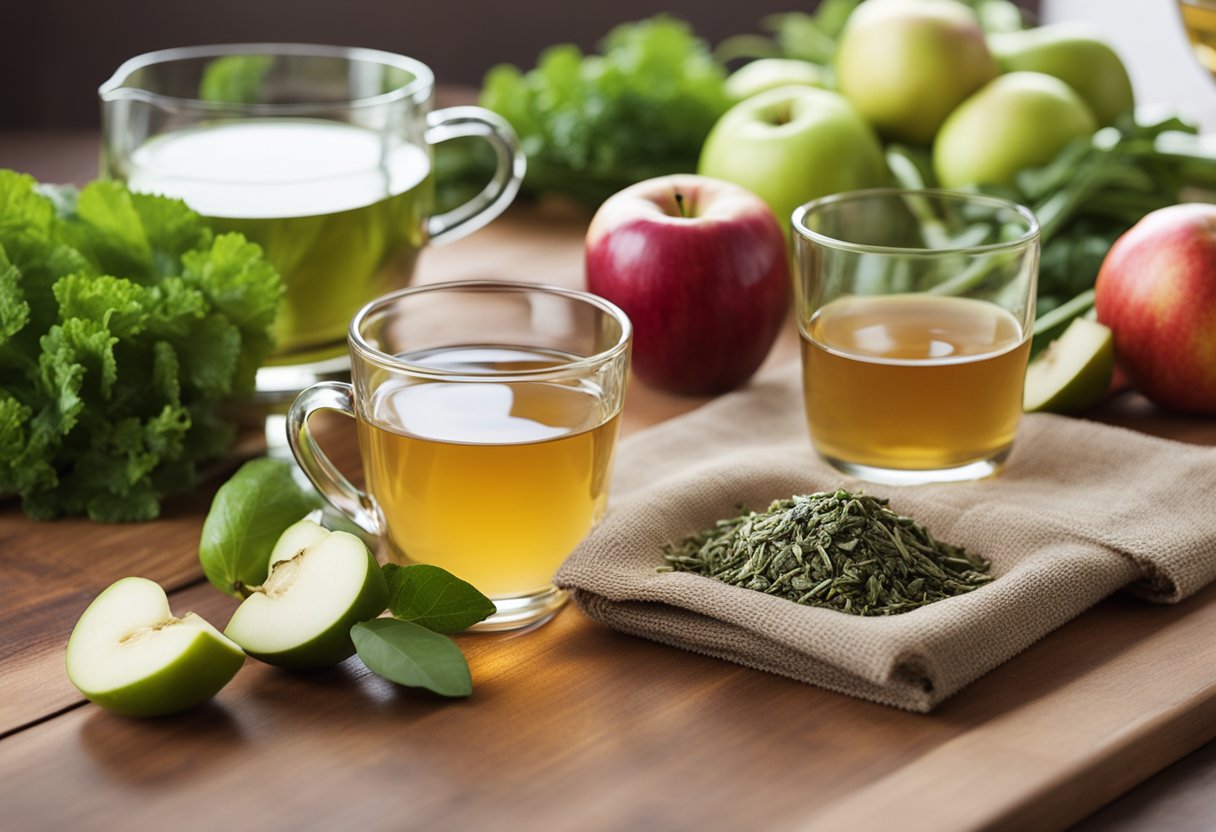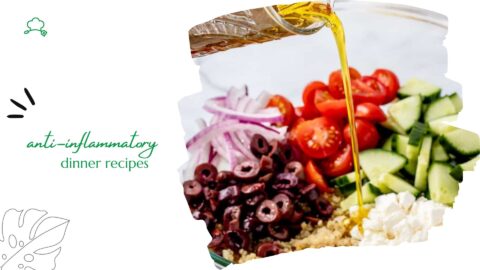What Natural Supplements Aid in Weight Loss?
Many people struggle with weight loss and turn to natural remedies to aid in their journey. However, with countless options available, it can be challenging to determine which ones are effective and safe. In this article, we will explore the natural supplements and remedies that have shown promise in promoting weight loss.

One of the most popular natural remedies for weight loss is green tea. It contains compounds called catechins, which have been shown to increase metabolism and promote fat burning. Additionally, green tea is rich in antioxidants and has been linked to a reduced risk of heart disease and certain cancers. Other natural supplements that have gained popularity in recent years include garcinia cambogia, raspberry ketones, and conjugated linoleic acid (CLA). However, it is essential to note that while these supplements may aid in weight loss, they are not a substitute for a healthy diet and regular exercise.
Understanding Weight Loss

The Science of Losing Weight
Weight loss is a complex process that involves the burning of stored fat in the body. When the body consumes fewer calories than it requires, it begins to break down fat cells for energy. This process is known as lipolysis. The fat cells release their stored energy in the form of fatty acids, which are then transported to the liver and converted into ketones. These ketones can then be used by the body as an alternative source of energy.
The rate at which the body burns fat depends on a variety of factors, including age, gender, genetics, diet, and physical activity levels. In general, the more muscle mass a person has, the faster their metabolism will be, and the more calories they will burn at rest.
Factors Affecting Weight Loss
There are several factors that can affect a person’s ability to lose weight. One of the most significant is diet. Consuming a diet that is high in processed foods, sugar, and saturated fats can lead to weight gain and make it more difficult to lose weight. On the other hand, a diet that is high in protein, fiber, and healthy fats can help to promote weight loss.
Physical activity is another critical factor in weight loss. Regular exercise can help to increase muscle mass, boost metabolism, and burn calories. In addition, exercise has been shown to reduce stress levels, which can also lead to weight loss.
Other factors that can affect weight loss include sleep quality, stress levels, and hormonal imbalances. Getting enough sleep is essential for weight loss, as lack of sleep can lead to increased levels of the hormone ghrelin, which stimulates hunger. Stress can also lead to weight gain by increasing levels of the hormone cortisol, which can cause the body to store fat. Hormonal imbalances, such as those caused by thyroid disorders, can also affect weight loss by slowing down metabolism.
Overall, weight loss is a complex process that involves a variety of factors. By understanding the science behind weight loss and the factors that can affect it, individuals can make informed decisions about their diet and lifestyle to achieve their weight loss goals.
Natural Weight Loss Strategies

Losing weight can be a challenging task, but adopting a natural approach can make it easier and more sustainable in the long run. Here are some natural weight loss strategies that can help achieve a healthy body weight:
Whole Foods and Clean Eating
Eating whole foods and avoiding processed foods can be an effective way to lose weight. Whole foods are nutrient-dense and provide essential vitamins and minerals that the body needs to function properly. Clean eating involves avoiding foods with added sugars, unhealthy fats, and artificial ingredients.
To incorporate whole foods into the diet, one can start by adding more fruits, vegetables, whole grains, and lean proteins to their meals. This can help reduce calorie intake and increase satiety, leading to weight loss.
Balanced Diet and Portion Control
A balanced diet that includes all the essential macronutrients (carbohydrates, proteins, and fats) in the right proportion can help achieve weight loss goals. Portion control is also important to avoid overeating and consuming excess calories.
One can use tools such as measuring cups, food scales, and portion control plates to ensure that they are eating the right amount of food. Eating slowly and mindfully can also help prevent overeating and promote weight loss.
Regular Physical Activity
Regular physical activity is essential for weight loss and overall health. It helps burn calories, increase metabolism, and improve cardiovascular health. One can engage in activities such as walking, jogging, cycling, swimming, or any other physical activity that they enjoy.
To make physical activity a habit, one can start by setting achievable goals and gradually increasing the intensity and duration of the activity. It is also important to incorporate strength training exercises to build muscle and boost metabolism.
By adopting these natural weight loss strategies, one can achieve a healthy body weight and improve overall health and well-being.
Nutrition and Weight Loss

Macronutrients and Weight Loss
Macronutrients, including carbohydrates, proteins, and fats, play a crucial role in weight loss. A diet that is high in protein and low in carbohydrates and fats has been shown to be effective for weight loss. Protein helps to increase feelings of fullness and satiety, which can lead to a reduction in calorie intake. Additionally, protein has a higher thermic effect than carbohydrates and fats, meaning that it requires more energy to digest and metabolize, thereby increasing calorie expenditure.
Carbohydrates, on the other hand, are an important source of energy for the body. However, consuming too many carbohydrates can lead to weight gain. It is recommended to consume complex carbohydrates, such as whole grains, fruits, and vegetables, which provide important nutrients and fiber while also helping to regulate blood sugar levels.
Fats are also an important macronutrient, but it is important to choose healthy fats, such as those found in nuts, seeds, and fatty fish. These fats can help to reduce inflammation and improve heart health, while also providing satiety.
Micronutrients and Their Role
Micronutrients, including vitamins and minerals, are important for overall health and can also play a role in weight loss. For example, vitamin D has been shown to be important for weight management, as low levels of vitamin D have been linked to obesity.
Other micronutrients, such as iron and magnesium, can also play a role in weight loss. Iron is important for the production of red blood cells, which transport oxygen throughout the body, while magnesium is involved in energy metabolism and can help to regulate blood sugar levels.
Hydration and Weight Management
Staying hydrated is important for overall health and can also play a role in weight management. Drinking water before meals has been shown to reduce calorie intake, while also helping to increase feelings of fullness.
Additionally, dehydration can lead to a reduction in energy levels and can make it more difficult to exercise, which can impact weight loss efforts. It is recommended to drink at least 8 glasses of water per day, and more if exercising or in hot weather.
Natural Weight Loss Aids

Losing weight can be a struggle, but incorporating natural aids into your routine can help. Here are some natural weight loss aids that can help you achieve your goals.
Herbs and Spices for Metabolism
Certain herbs and spices can help boost metabolism, which can lead to weight loss. Some of the most effective herbs and spices for weight loss include:
- Cayenne pepper: Contains capsaicin, which can help increase metabolism and reduce appetite.
- Cinnamon: Helps regulate blood sugar levels, which can reduce cravings and promote weight loss.
- Ginger: Contains gingerol, which can help increase metabolism and reduce inflammation.
- Turmeric: Contains curcumin, which can help reduce inflammation and improve insulin sensitivity.
Natural Supplements
Natural supplements can also aid in weight loss. Here are some of the most effective natural supplements for weight loss:
- Green tea extract: Contains catechins and caffeine, which can help increase metabolism and reduce appetite.
- Garcinia cambogia: Contains hydroxycitric acid, which can help reduce appetite and inhibit fat production.
- Conjugated linoleic acid (CLA): Can help reduce body fat and increase lean muscle mass.
- Apple cider vinegar: Can help reduce appetite and improve digestion.
Superfoods for Weight Loss
Incorporating superfoods into your diet can also aid in weight loss. Here are some of the most effective superfoods for weight loss:
- Avocado: Contains healthy fats and fiber, which can help reduce appetite and promote weight loss.
- Chia seeds: Contains fiber and protein, which can help reduce appetite and promote weight loss.
- Quinoa: Contains protein and fiber, which can help reduce appetite and promote weight loss.
- Blueberries: Contains antioxidants and fiber, which can help reduce inflammation and promote weight loss.
Incorporating these natural weight loss aids into your routine can help you achieve your weight loss goals. However, it’s important to remember that weight loss is a journey and requires a combination of healthy eating and exercise habits.
Lifestyle Changes for Sustainable Weight Loss

Sleep and Weight Loss
Getting enough sleep is crucial for weight loss. Lack of sleep can increase hunger and cravings, as well as decrease energy levels, making it harder to stick to a healthy diet and exercise routine. Studies have shown that people who get less than 7 hours of sleep per night are more likely to be overweight or obese.
To improve sleep quality, it’s important to establish a regular sleep schedule, avoid caffeine and alcohol before bedtime, and create a relaxing bedtime routine. Additionally, keeping the bedroom cool, dark, and quiet can promote better sleep.
Stress Management
Stress can also have a negative impact on weight loss efforts. When stressed, the body releases cortisol, a hormone that can increase appetite and lead to overeating. Chronic stress can also disrupt sleep and decrease motivation to exercise.
To manage stress, individuals can practice relaxation techniques such as deep breathing, yoga, or meditation. Regular exercise has also been shown to reduce stress levels.
Behavioral Changes and Mindset
Making small, sustainable changes to daily habits can lead to long-term weight loss success. This can include simple actions such as drinking more water, taking the stairs instead of the elevator, or packing healthy snacks for work.
The right mindset is also important for weight loss. Focusing on progress rather than perfection, setting realistic goals, and celebrating small victories can help individuals stay motivated and committed to their weight loss journey.
By incorporating these lifestyle changes, individuals can achieve sustainable weight loss and improve overall health and well-being.
| Tips for Sustainable Weight Loss |
|---|
| Establish a regular sleep schedule |
| Avoid caffeine and alcohol before bedtime |
| Practice relaxation techniques such as deep breathing, yoga, or meditation |
| Make small, sustainable changes to daily habits |
| Focus on progress rather than perfection |
| Celebrate small victories |
Weight Loss Recipes and Meal Planning

When it comes to losing weight, it’s important to focus on healthy, nutrient-dense foods that will keep you feeling full and satisfied. Here are some recipe ideas and meal planning tips to help you on your weight loss journey.
Healthy Breakfast Ideas
Breakfast is the most important meal of the day, and it’s essential to start your day off right with a nutrient-dense meal. Here are some healthy breakfast ideas that will keep you feeling full and energized throughout the day:
- Oatmeal with fresh fruit and nuts
- Greek yogurt with berries and granola
- Veggie omelet with whole grain toast
- Smoothie bowl with spinach, berries, and almond milk
Lunch and Dinner for Weight Loss
When planning your meals, focus on lean protein, healthy fats, and lots of vegetables. Here are some healthy lunch and dinner ideas to help you stay on track:
- Grilled chicken with roasted vegetables
- Salmon with quinoa and steamed broccoli
- Turkey chili with sweet potato
- Lentil soup with whole grain bread
Snacks and Desserts
Snacking can be a healthy part of your weight loss plan, as long as you choose nutrient-dense options. Here are some healthy snack and dessert ideas to satisfy your cravings:
- Apple slices with almond butter
- Carrots and hummus
- Air-popped popcorn with nutritional yeast
- Dark chocolate with berries
When planning your meals, focus on whole, natural foods that will nourish your body and support your weight loss goals. With these healthy recipes and meal planning tips, you’ll be on your way to a healthier, happier you.
Challenges and Solutions in Weight Loss

Overcoming Plateaus
One of the biggest challenges in weight loss is hitting a plateau. This is when the body stops losing weight despite continued efforts to eat healthily and exercise regularly. To overcome this, it is important to mix up the workout routine and try new activities. For example, if someone has been doing cardio exercises, they can try adding strength training to their routine. They can also change up their diet by introducing new healthy foods or reducing calorie intake.
Dealing With Cravings
Another challenge in weight loss is dealing with cravings. It is important to identify the triggers that cause cravings and find healthy alternatives to satisfy them. For example, if someone craves sweets, they can try eating fruits instead of processed sugar. They can also try drinking water or herbal tea to curb cravings. It is important to avoid skipping meals, as this can lead to overeating and increased cravings.
Maintaining Motivation
Maintaining motivation is another challenge in weight loss. It is important to set realistic goals and track progress regularly. Celebrating small victories along the way can also help maintain motivation. Finding a workout buddy or joining a support group can also provide accountability and motivation. It is important to remember that weight loss is a journey and setbacks are normal. It is important to stay positive and keep moving forward.
In conclusion, weight loss can be a challenging journey, but with the right mindset and strategies, it is achievable. By overcoming plateaus, dealing with cravings, and maintaining motivation, individuals can achieve their weight loss goals and improve their overall health and well-being.
Conclusion

Natural weight loss supplements can be a helpful addition to a healthy diet and exercise routine. However, it’s important to remember that they are not a magic solution and should not be relied upon as the sole method of weight loss.
Some natural supplements, such as green tea extract and conjugated linoleic acid (CLA), have been shown to have modest effects on weight loss. Others, like garcinia cambogia and raspberry ketones, have limited evidence to support their effectiveness.
It’s important to speak with a healthcare professional before starting any new supplement regimen, especially if you have any underlying health conditions or are taking medication. Additionally, be sure to purchase supplements from reputable sources and follow the recommended dosage instructions.
Overall, while natural weight loss supplements may offer some benefits, they should be used in conjunction with a healthy lifestyle for the best results.







